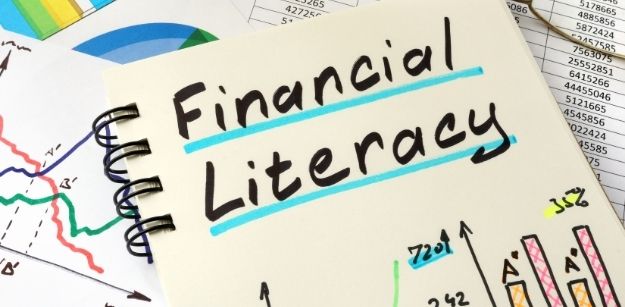Definition of financial literacy
It is whereby one has the skills that allow him or her to manage money effectively. To be financially literate, you need to make the right financial decision starting from your savings to investments.

Meaning of personal financial literacy
These are the skills in financial situations to take practical actions that fulfill a person’s goals. For you to be literate to some level, you have to save your own money correctly, spend your money without wasting it, factoring government receivables, plan for your retirement, and lastly, invest where need be.
Importance of financial literacy
Numerous benefits come with financial literacy. When you have financial literacy, you will make the right decisions regarding anything concerning money. You will not need anyone to get finance homework help and make your decisions. That is the best thing about it. You will manage your finances well without making any mistakes that you have to achieve your goal. The moment you have financial literacy, there is no way you will fail to manage your finances in the right manner. Numerous consequences come with financial illiteracy. You can end up lending money without keeping any record or even get bankrupt. In America, it is serious because two-thirds of the are not capable of passing the financial literacy test because of some factors;
- Approximately 25% of the people do not have emergency savings
- Only 22% of the people have$5000 or less in their account for retirement. Shows you that a good number of Americans do not have the cash that can help them retire comfortably
If you are financially literate, you will keep your finances in check, and bankruptcy will be the least of your worries. You have to educate yourself so that you have the necessary financial literacy.
Components of financial literacy
If you take your time and follow all the concepts, there is no way you will have problems with your finances. If you choose to assume all of them, you’ll regret it later when it’s too late.
Budgeting 101
If you want to keep your finances in check, you have to budget. When you have a budget, it will be easy for you to know how to spend your money. You will learn the exact things to buy and the amount of money to use. You will not have any debts because you will plan yourself carefully. You will know the money that enters your account and the one that leaves. It is excellent to keep track of your finances so that you don’t waste any money.
Managing debt
Debt is not a bad thing, but it is an obstacle that will not make you reach your financial goals. You have to ensure that you pay your debts on time so that you avoid any dire circumstances. If you want to pay your debt quickly, consider paying them monthly. You’ll also have to cut off some expenses so that you don’t spend a lot of money.
Saving
Saving has numerous benefits that will help you in your day-to-day life and also your future. When you consider saving, you will not waste any money, which is the best way to manage your finances. You will not have any debt stress because it will be hard for you to borrow money.